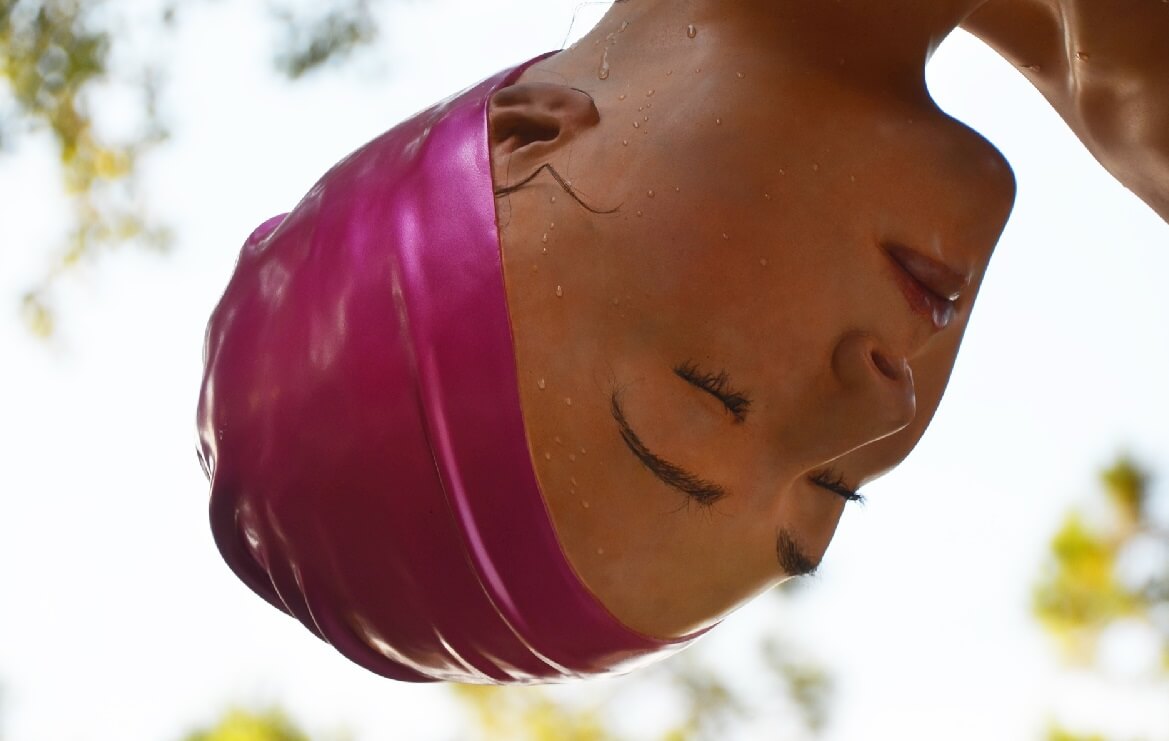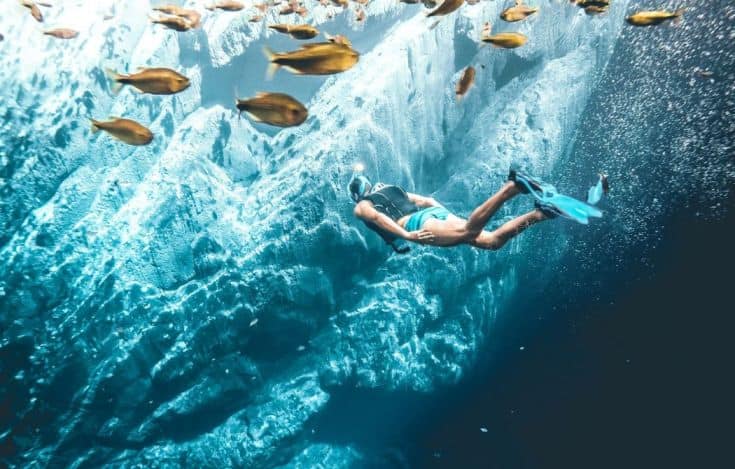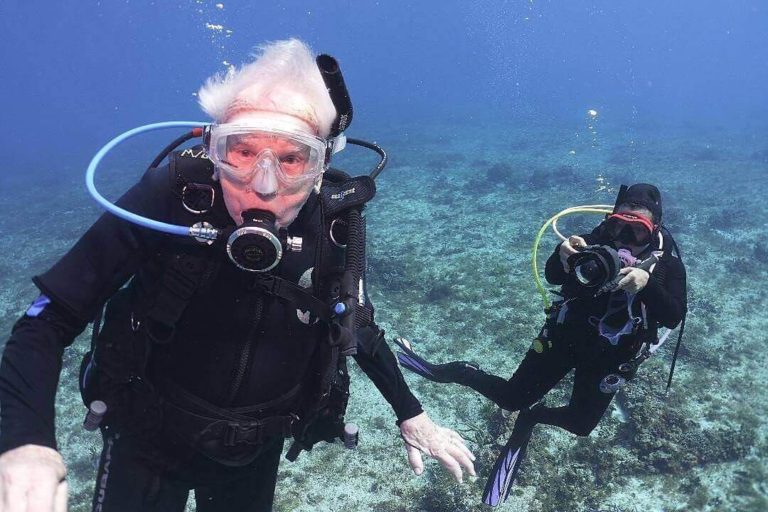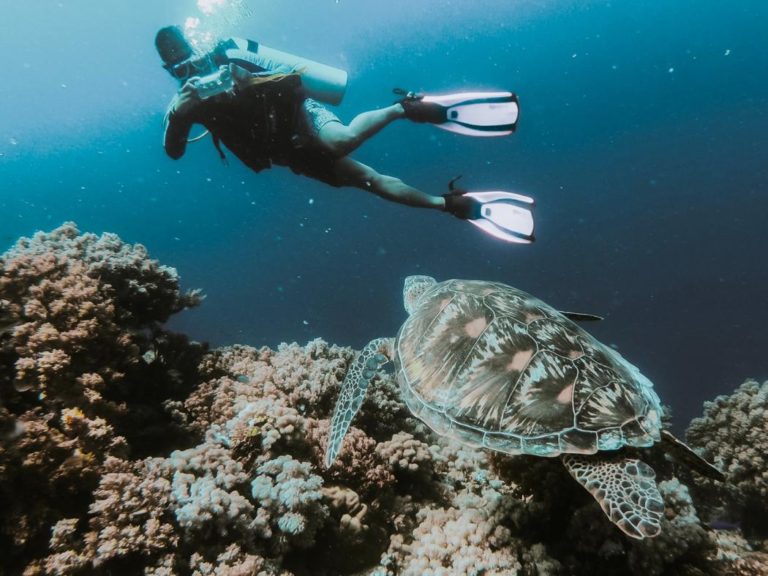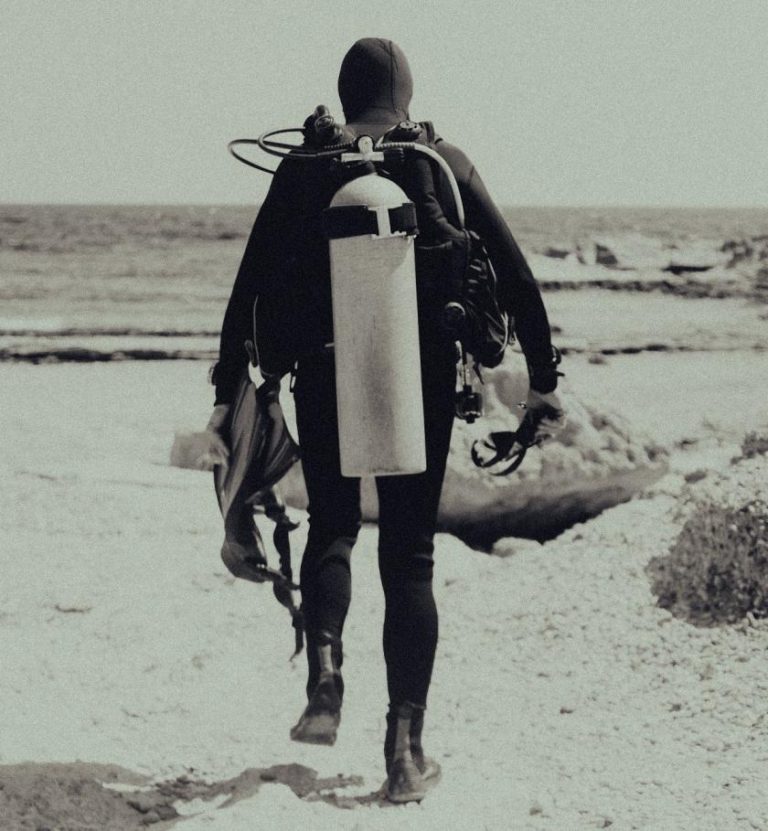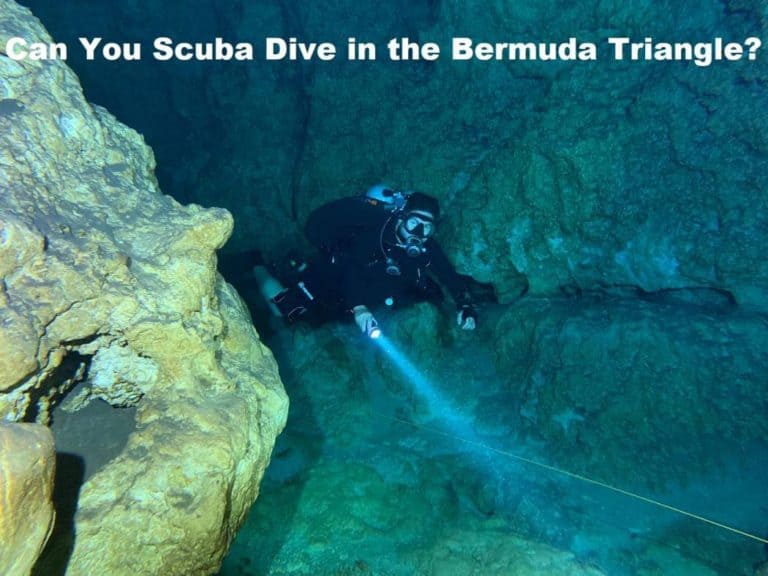Can You Wear a Swim Cap to Scuba Dive
Long hair while scuba diving has always been a challenge to many divers both male and female. Long hair is truly beautiful on anyone, more men are growing out their hair and embracing the curls and coils. If you love scuba diving and also have long hair you may worry about hair getting into your mask, getting tangled in seaweeds, or getting entangled in your diving gear. One may wonder can you wear a swim cap to scuba dive.
Yes, you can wear a swim cap to scuba dive but it’s not a diver’s first choice for hair protection. Swim caps tend to be very slippery and can cause the mask to slip, fall, or move out of position allowing water into the mask. Divers with long hair prefer to use diving hoods, beanies, headbands, and ponytail holders, or braid the hair to keep it away from their mask and prevent tangles.
Although not a diver’s first choice, swimming caps are still popular among many divers as they get the job done.
To enhance its performance, pick a cap that fits you properly to avoid any movements and also ensure you wear the mask properly. This helps minimize any chances of the mask falling off or slipping during the dive.
In this article, we’ll dive deeper into how to scuba dive with long hair, look into some of the best gear to protect your hair, how to take care of your hair before and after a dive and so much more.
Keep reading!

Why Do Divers Not Wear Swimming Caps
- Many divers and scuba divers with long hair prefer to only tie the hair up in a ponytail while scuba diving because this allows them to properly wear and strap the mask to the back of the head.
- In addition, some divers especially beginners may have a challenge equalizing their ears when wearing protective gear for the hair that also covers the ears.
- Many divers have mastered a technique that works for them thus eliminating the need for hair protection gear.
Below are some of the techniques divers use to keep long hair in check while diving;
- Braided pigtails secured with a rubber band at the end
- French braid(s)
- Use ponytail holders to secure the entire pony
- Braided ponytail
- High Bun(s)
Most of these hair-holding techniques will keep your hair out of your mask and in place throughout the dive. Unless the ponytail holder or rubber band used is loose, then it’s unlikely that your hair will unravel while in water.
If you have short to medium-length hair you don’t have to worry so much about hair coming into your mask or getting tangled. A simple ponytail or bun will keep it out of the way.
READ MORE: Best Scuba Diving Headbands
Scuba Diving With Hair Extensions
We’ve looked into some ways to keep long natural hair out of your face and mask. Can these techniques still work for hair extensions?
Maybe you just got hair extensions installed then went on a girl’s trip or went on a trip and decided to go scuba diving. You’re most likely worried about damaging the hair extensions before getting your money’s worth or simply worried the extensions will get tangled pulling your hair in the process.
Hair extensions can be quite expensive not including the installation costs. For this reason, many dives always have concerns about damages to expect, the state of their hair after the dive and so much more.
Scuba diving with hair extensions means you have to take extra care of your hair. Start by wetting the hair with fresh water, then apply an organic leavIn conditioner or hair oil all over your hair. Put it in a bun, pony or braid the hair down then cover it up with a diving beanie or a diving hood.
If you don’t have a hood or a beanie, you can simply use a headband or just leave the hair as it is after conditioning and putting it into a bun.
The conditioner helps protect both your natural hair and the extensions from the salty water and also reduces the tangles formed. Putting the hair into a bun/pony will prevent or reduce tangles.
After the dive, simply rinse out the conditioner and proceed with your normal hair care routine. Light shampooing will help replenish the hair and give it a shine once you are done drying it.
Most importantly, remember the quality of your extensions matters a lot. Low-quality extensions will get tangled or damaged even from swimming in a pool.
In addition, the quality of glue used for the extensions needs to be adhesive enough to withstand all the water and salts.
Try extensions that don’t use glue as these will hold better in the water and also last longer even after several dives.

Read More: Can You Scuba Dive without a Wetsuit?
How can I protect my hair while scuba diving
As a diver with long hair, you’ll need to take care of your hair before and after dives to maintain its natural glow and glory.
Salty water just like chlorine in swimming pools strips off the natural oils from your hair leaving it looking matted, dull, and even tangled.
Some of the best ways to maintain healthy hair are by having a hair care routine even before diving. A good routine keeps your hair healthy and will protect it even when you take spontaneous dives.
However, if you don’t have a strict routine don’t worry there’s still hope for everyone.
First, avoid shampoos or hair appointments the day before your dive. There is no point in getting an expensive hair treatment if you are diving the next day. Shampooing can leave your hair vulnerable and easily get damaged since the natural oils will be stripped off.
Simply schedule the hair appointment after your dive.
On the day of the dive prepare your hair before going for dive by wetting the hair with fresh water and applying a conditioner and oil.
This keeps the hair protected from the salty water, by applying the conditioner and the oils you lock the hair cuticles meaning salty water won’t get into the hair strands leaving them dry and brittle.
After the dive, rinse your hair immediately don’t leave the salty water lingering on for too long as this can still cause extensive damage in the end. Remember to first take down the braids or rubber bands used to secure the hair before rinsing.
Since most dives happen in open waters and it could take some time before getting back to your room, it’s wise to have a bottle of clean freshwater just to rinse the hair off once you get out of the dive.
Scuba Diving With Relaxed Hair
Relax hair is most fragile and sensitive. Normally relaxed hair requires extensive care even when not scuba diving.
If you are planning on going on a scuba diving trip, it’s best to braid the hair as this will offer maximum protection to your hair.
Diving with open relaxed hair exposes it to harsh conditions and it’s likely to break. You may not notice this right after the dive but you sure will on your next salon appointment.
Consult your hairstylist and ask for some hair care tips before diving. If you have doubts and are worried about the condition of your hair my best advice would be don’t do it.
When braided, you still need to take care of the braided hair before and after.
Tips shared above on taking care of your hair are applicable for braided hair too.
Read More: Are Scuba and Snorkel Masks the same?
Types of Gear to keep your hair contained during the dive
It’s important to note that most of these protective hair caps only keep the hair contained and not necessarily dry. Water does get through most of these but they are useful in terms of keeping the hair out of your mask and preventing tangles.
Always pick a gear that feels comfortable to you as a diver and pick one that fits perfectly.
Let’s get into the different types of gear for your hair.
Wear a diving hood

One of the most popular ways to keep long hair contained. Diving hoods come in all sizes, styles, and colors. These cover your hair, and ears all the way to the neck meaning any length of long hair can be concealed using a diving hood.
If it’s your first time using a hood or as a beginner in scuba diving you may experience challenges equalizing your ears. However, this isn’t common among many divers. Many have no problem wearing them.
Diving headband
Diving headbands are also popular among female divers. A diving headband will keep hair away from your face and mask without covering your ears.
This is a great choice for divers experiencing challenges equalizing their ears while wearing hoods or beanies.
A headband also makes it easy to properly wear your mask as it doesn’t interfere with the straps at the back of the head.
Divers with really long hair can use headbands and simply braid the rest of the hair or secure it with ponytail holders. For most divers, a headband only is usually enough to keep the hair contained.
Use a swimming cap

As mentioned earlier, swimming caps aren’t very popular but they are still useful.
Tuck the hair into the swimming cap and enjoy your dive.
One main challenge for divers with long hair is the cap may not be big enough to secure all the hair. This makes it impossible to wear the mask and secure it properly.
Another challenge with wearing a swimming cap to scuba dive is that the material used could be very slippery causing the mask to slip or fall off. As the water gets into your mask, scuba diving becomes a challenge.
Wear a headscarf/Durag
Scarfs are also popular among divers. These are like headbands but tend to have different materials and are often longer and wider compared to headbands.
Ensure you tie the scarf properly and secure the strips entirely to avoid unraveling during the dive o getting caught up.
Final Thoughts
In this article, we’ve looked into whether you can wear a swim cap to scuba dive.
Swim caps are functional in keeping the hair contained during a dive. Simply pick one that fits you properly and doesn’t interfere with the mask.
We’ve also looked into various types of hair protection gear to help you during the next dive. Addressed hair care for different hair types when scuba diving and some of the most popular and easy ways to contain your long hair each time you dive.
I hope this article has provided you with the necessary knowledge and tips to keep your hair in check and protected.

